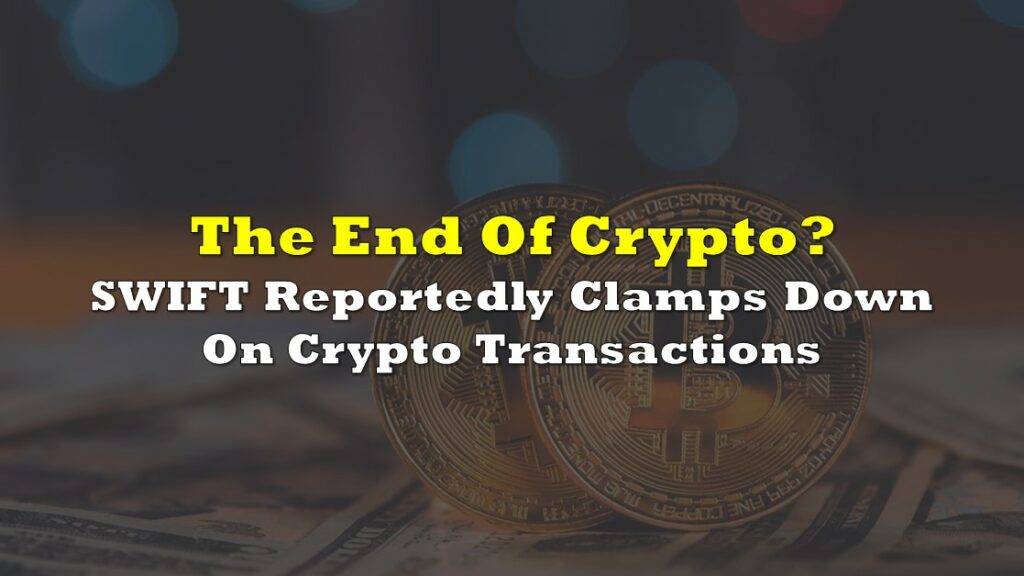Atlas Capital Team chief economist Nouriel Roubini did not hold back in characterizing the threat the Chinese yuan poses to the US dollar and its decades-long dominance in the global financial system.
In a Financial Times article, Roubini prefaced that while many forces weren’t able to topple the US dollar’s “exorbitant privilege” as the main reserve currency, he pointed out that the renminbi is poised to divide the world and share the dollar’s status as the global fiat.
“In a world that will be increasingly divided into two geopolitical spheres of influence — namely those surrounding the US and China — it is likely that a bipolar, rather than a multipolar, currency regime will eventually replace the unipolar one,” Roubini wrote.
My new @FT oped on gradual de-dollarization:
— Nouriel Roubini (@Nouriel) February 5, 2023
A bipolar currency regime will replace the dollar’s exorbitant privilege.
The greenback is bound sooner or later to feel the effects of intensifying geopolitical rivalry between the US and Chinahttps://t.co/gJoxUf9YjI
This echoes the long-standing theory by Credit Suisse strategist Zoltan Pozsar who, in an article in the same media outfit a few weeks ago, said that “the dollar-based monetary order is already being challenged in multiple ways.”
The Atlas Capital co-founder outlined many arguments that prevail on why the yuan will not be able to overtake the dollar as a reserve currency anytime soon. The global share of the US dollar as a unit of account, means of payment, and store of value hasn’t fallen that much despite talks of a terminal decline, while there are capital controls in China that restricts the yuan from becoming a real reserve currency.
“They also point out that you can’t replace something with nothing — as former US Treasury secretary Lawrence Summers put it: ‘Europe is a museum, Japan is a nursing home and China is a jail’,” he added.
He also stated that a reserve currency country must accept constant current account deficits, as the US has done for many years, in order to issue enough of the liabilities held by non-residents as a counterpart. And even though there are efforts for pushing a multipolar currency, like the International Monetary Fund establishing the international reserve asset Special Drawing Rights in 1969 and adding the renminbi to the basket in 2016, these measures have so far failed to destabilize the US dollar hegemony.
Bipolar shift
While the Chinese renminbi may not be able to replace the US dollar’s status immediately, it is more likely that it can co-exist as a currency reserve option in a few years.
The so-called Dr. Doom economist, known for his grim predictions, sees a bipolar world moving forward, outlining his arguments on how the yuan will achieve world reserve currency status alongside the dollar. Roubini noted that “complete exchange rate flexibility and international capital mobility [are] not necessary in order for a country to achieve reserve currency status.”
“After all, in the era of the gold-exchange standard the dollar was dominant in spite of fixed exchange rates and widespread capital controls,” he noted.
While critics often caution that China’s strict currency restrictions should prevent the yuan from surpassing the dollar, Roubini stated that the US has its own version that “reduces the appeal of dollar assets among foes and relative friends.”
“These include financial sanctions against its rivals, restrictions to inward investment in many national security-sensitive sectors and firms, and even secondary sanctions against friends who violate the primary ones,” he wrote.
For critics who are doubting the yuan as a reserve currency given that China consistently has a current account surplus, Roubini said that “China may in any case be moving towards a growth model less dependent on trade surpluses.”
“There is a clear so-called Triffin dilemma in a currency regime in which the reserve country runs permanent current account deficits that will eventually undermine its reserve status as the growth in its international liabilities becomes unsustainable,” the economist argued.
Oil trade, CBDC, currency swap
In narrating the bipolar shift, the Turkish-American economist noted that “China and Saudi Arabia conducted their first transaction in renminbi” in December, adding, “it is not farfetched to think that Beijing could offer the Saudis and other Gulf Co-operation Council (GCC) petrostates the ability to trade oil in RMB and to hold a greater share of their reserves in the Chinese currency.”
Pozsar covered the very same geopolitical shift in one of his dispatches in December, noting how Chinese President Xi Jinping’s speech during the GCC summit speaks to how the renminbi is angling to eclipse the use of US dollars as a reserve currency to settle oil trades.
“China, already the largest buyer of oil and gas from GCC countries, will buy even more in the future, and wants to pay for all of it in renminbi over the next three to five years.” Pozsar also noted that the Chinese leader communicated this “not during the first day of his visit – when he met only the Saudi leadership – but during the second day of his visit – when he met the leadership of all the GCC countries.”
“GCC oil flowing East + renminbi invoicing = the dawn of the petroyuan,” he summed up.
Roubini also highlighted that new technologies including central bank digital currency (CBDC), payment systems, swap lines between China and other countries, and alternatives to Swift, “will hasten the advent of a bipolar global monetary and financial system.”
However, Michael Pettis, a senior fellow at the Carnegie Endowment for International Peace, remarked that while these new technologies can significantly cut the frictional costs of currency and trade movements, “the extent of these costs were never part of the reason [why the Chinese central bank] has always strictly controlled capital flows into and out of China.”
“It does so mainly because it is extremely concerned (and rightly so, in my opinion) about the destabilizing impacts of speculative and flight capital on the Chinese financial system and its trade account. Otherwise it would have long ago opened its capital account,” Pettis wrote on Twitter.
7/7
— Michael Pettis (@michaelxpettis) February 6, 2023
We shouldn't associate lower frictional costs with a greater acceptance of capital flows. On the contrary, increasing the speed, volume, and reflexivity of capital movements should make the PBoC more, not less, concerned about the risks of internationalizing the RMB.
Pozsar also discussed these fintech moves in his past dispatch, highlighting in Xi’s GCC summit speech a reference to the m-CBDC Bridge. The project, “enables real-time, peer-to-peer, cross-border, and foreign exchange transactions,” and is being undertaken by the central banks of China, Thailand, Hong Kong, and United Arab Emirates. This would conduct exchanges “without involving the US dollar or the network of Western correspondent banks that the U.S. dollar system runs on.”
“In a very Uncle Sam-like fashion, China wants more of the GCC’s oil, wants to pay for it with renminbi, and wants the GCC to accept e-renminbi on the m-CBDC Bridge platform, so don’t hesitate – join the mBridge fast train,” said Pozsar.
To make things sweeter for the GCC, Xi also highlighted starting “currency swap cooperation,” facilitating an easier way for the countries to buy the stuff it needs with China extending loans in renminbi. This can be repaid via the swap lines when China buys oil for renminbi.
US dollar’s decline in a decade
For all of these factors, Roubini sees the US dollar’s status as the primary reserve currency projected to decline during the next decade.
“The intensifying geopolitical contest between Washington and Beijing will inevitably be felt in a bipolar global reserve currency regime as well,” he ended.
There’s been an increasing level of discourse on the possibility of displacing the dollar as the top global fiat, mainly stemming from geopolitical events. Russia continues to turn its back on the US dollar and is in the midst of devising a new strategy to conduct settlements with Africa in local currencies, while Saudi Arabia has recently pronounced that it is opening its economic doors to trading in currencies other than the US dollar.
Brazil and Argentina are expected to begin preliminary work on a common currency to be used in South America–tentatively named “sur”–to “boost regional trade and reduce reliance on the U.S. dollar.” The BRICS countries – Brazil, Russia, India, China, and South Africa – will also discuss creating a common currency at a summit in August in South Africa.
Last week, Ghana announced the framework for its Gold for Oil program, essentially aimed at using its gold reserves to settle oil imports.
Information for this briefing was found via Financial Times. The author has no securities or affiliations related to this organization. Not a recommendation to buy or sell. Always do additional research and consult a professional before purchasing a security. The author holds no licenses.









